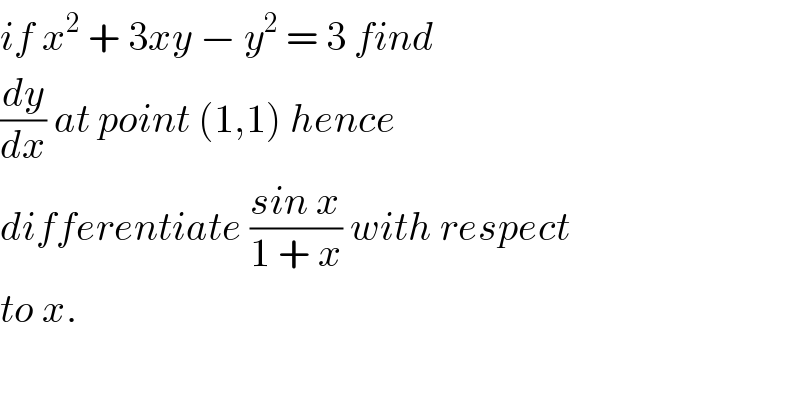
Question and Answers Forum
Question Number 38252 by Rio Mike last updated on 23/Jun/18

Commented by math khazana by abdo last updated on 23/Jun/18

Commented by math khazana by abdo last updated on 23/Jun/18

| ||
Question and Answers Forum | ||
Question Number 38252 by Rio Mike last updated on 23/Jun/18 | ||
 | ||
Commented by math khazana by abdo last updated on 23/Jun/18 | ||
 | ||
Commented by math khazana by abdo last updated on 23/Jun/18 | ||
 | ||